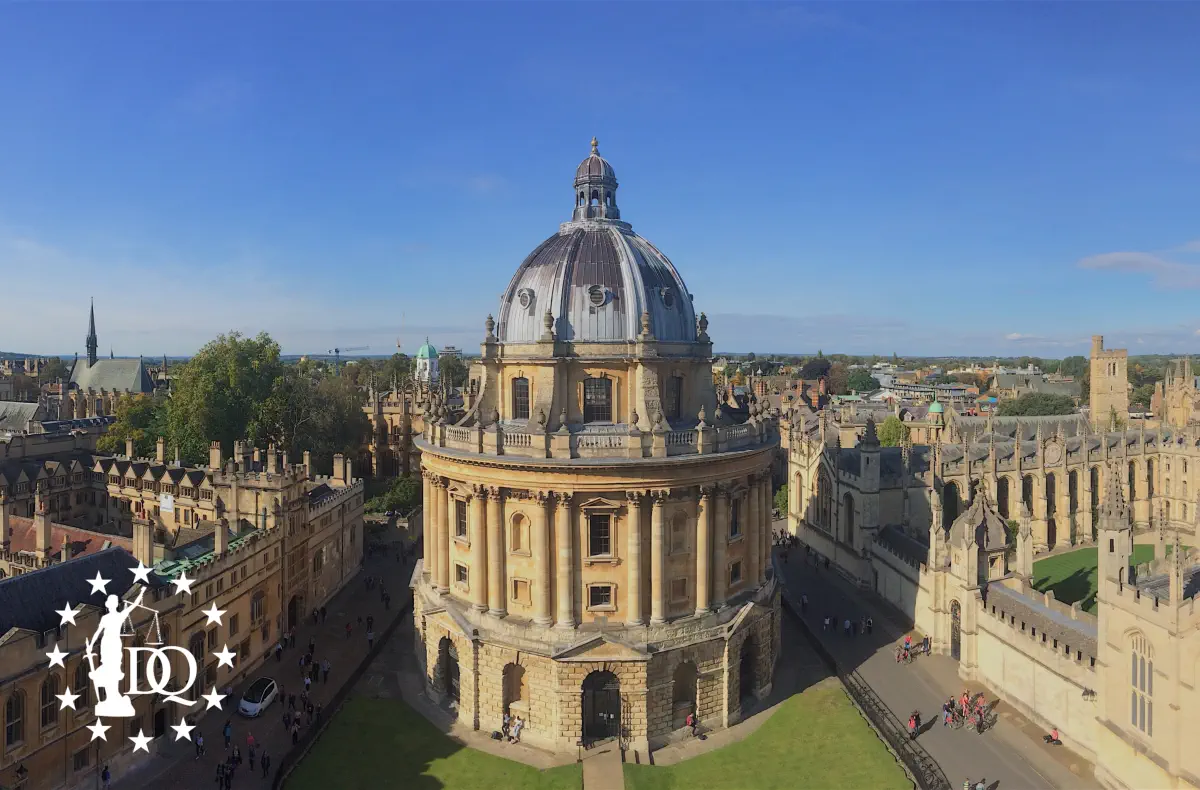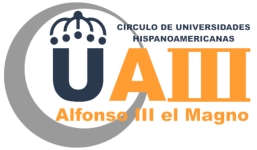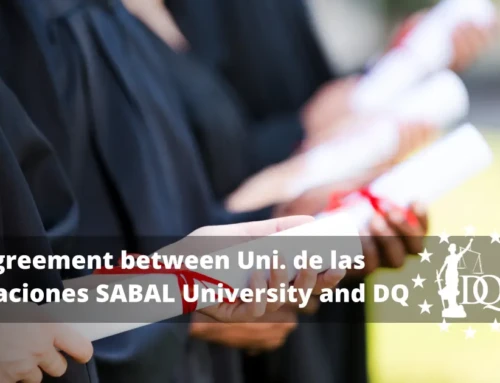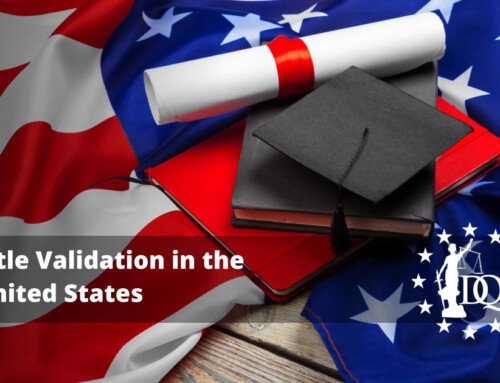In international education, ensuring universities are officially recognized is crucial for guaranteeing that degrees are acknowledged both nationally and internationally. This article provides a comprehensive guide on How to Know if a University Has Official Recognition, emphasizing the importance of this validity and specific methods for verifying it in different countries.
Official recognition ensures that the education received meets the standards set by educational authorities. Without this certification, degrees and diplomas may not be recognized by employers or higher education institutions. This is particularly relevant for online education, where unaccredited institutions can make it difficult to distinguish between legitimate education and fraud.
A common question among students is how to know if an online university has official recognition. This aspect is crucial because studying at a university without official recognition can result in a waste of time and resources. Verification can be done through various sources, such as official listings of accredited institutions and the universities' own websites, where accreditations and certifications are usually specified.
Students should also be concerned about how to know if a university is legal. This involves checking whether the university is properly registered with the relevant educational authorities. In many countries, government agencies maintain an updated registry of legal and accredited universities. For example, in Mexico, the Secretariat of Public Education (SEP) handles this registry, while in the United States, the Department of Education (ED) performs this function.
Another relevant aspect is how to know if a university is registered. This may involve researching official databases, consulting directly with educational authorities, or reviewing official documentation provided by the university. This information not only helps guarantee the legality of the institution but also confirms that the educational programs offered meet the necessary quality standards.

AUTHOR
Doctrina Qualitas
CATEGORY
Blog
PUBLICATION DATE
06/11/2024
READING TIME
16 minutes
The importance of ensuring the official recognition of a university cannot be underestimated. A degree from an unrecognized institution can be practically useless, negatively affecting the graduate's employment and academic opportunities. Therefore, it is vital to conduct thorough research before enrolling in any educational program.
In addition to official sources, it is recommended to seek opinions and testimonials from students and graduates. The experiences of others can provide valuable insights into the reputation and quality of education at the institution of interest. However, it is important to take these opinions with caution and corroborate them with official information.
Knowing if a university has official recognition is a fundamental step for any student who wants to invest in their education safely and effectively. Whether you are looking to study online, in your home country, or abroad, it is always necessary to verify the official recognition of the university to ensure that your efforts and resources are well invested. In the following sections, we will delve into specific methods for verifying the official recognition of universities in Mexico, the United States, and other countries, providing practical tools and advice for future students.
What Is the Official Recognition of a University?
The official recognition of a university is a certification granted by competent educational authorities that certifies that an educational institution meets the academic and administrative requirements established by the government. This recognition is fundamental to ensure that the study programs offered by the university are legitimate and of quality. In many regions, official recognition is known under different terms and mechanisms, but the goal is the same: to ensure that the education provided is of an acceptable and officially recognized standard.
The official recognition of a university is crucial for students seeking to enroll in quality academic programs. Without this recognition, the degrees and certificates issued by the institution will not be recognized by other educational institutions or employers, negatively affecting the professional and academic opportunities of graduates.
Official recognition of a university also means that the institution has undergone a series of evaluations and audits that verify the quality of its academic programs, the qualifications of its teaching staff, and the infrastructure available for teaching and learning. This evaluation process is rigorous and continuous, ensuring that universities maintain high-quality standards over time.
It is important to distinguish between accreditation and official recognition. Although both terms are related, they are not the same. Accreditation generally refers to a voluntary process in which a university undergoes an evaluation by private or semi-private organizations that certify educational quality. On the other hand, official recognition is granted by governmental bodies and is a mandatory requirement for educational institutions to operate legally and for their degrees to be officially recognized.
For international students who wish to study abroad, knowing if a university has official recognition is equally important. Differences in educational systems and accreditation mechanisms between countries can lead to confusion about the legitimacy of an educational institution. Therefore, it is essential to research and ensure that the university in question has the appropriate official recognition in its country of origin.
Official recognition of a university has direct implications for the possibility of transferring academic credits between institutions, eligibility for scholarship and funding programs, and professional recognition in different labor fields. For example, in regulated professions such as medicine, law, or engineering, it is absolutely necessary for degrees to come from officially recognized universities to practice legally.
The search for quality education should be accompanied by verification that the selected university has the corresponding official recognition. This not only ensures a solid and respected education but also protects the investment of time and resources that students and their families make in academic training.
Understanding how to know if a university has official recognition is a fundamental step in the process of choosing an educational institution. This knowledge guarantees that students receive a recognized, quality education that is valid in both the professional and academic fields.
Do You Want to Validate Your Academic Credentials for the United States?
You can do it through Agencia Universitaria DQ.
We handle all the necessary processes for you!
How to Know if a University Has Official Recognition in Mexico
In Mexico, the official recognition of a university is crucial to ensure that the studies undertaken at the institution are recognized both nationally and internationally. Knowing if a university has official recognition in Mexico may seem complicated, but by following some key steps and consulting reliable sources, one can obtain the necessary information to make an informed decision.
Consult the Secretariat of Public Education (SEP)
The Secretariat of Public Education (SEP) is the government entity responsible for supervising and regulating education in Mexico. To verify the official recognition of a university, one of the first steps is to consult the SEP. This entity has the authority to grant the Recognition of Official Validity of Studies (RVOE), which is essential for an educational institution to be officially recognized.
The SEP website offers a search engine where you can verify if a university has the RVOE. This search engine allows you to enter the name of the institution or the specific academic program to check its official recognition. Additionally, you can consult directly at SEP offices or by phone for more detailed information.
It's important to note that the RVOE applies not only to private universities but also to specific programs within public universities. Therefore, when investigating how to know if a university has official recognition in Mexico, attention should be paid to both the institution in general and the specific programs of interest.
Review Lists of Universities Recognized by the SEP
Another effective way to know if a university has official recognition in Mexico is by reviewing the lists of universities recognized by the SEP. These lists are available on the SEP website and are regularly updated to include new institutions and programs that have received the RVOE.
These lists are usually organized by state and educational level, making it easier to search for specific information. By checking these lists, it is possible to confirm that the university and the program of interest are properly recognized. This not only guarantees that the studies undertaken will be valid but also provides a measure of the educational quality of the institution.
Verification of RVOE (Recognition of Official Validity of Studies)
The Recognition of Official Validity of Studies (RVOE) is a fundamental element for determining the official recognition of a university in Mexico. This recognition is granted by the SEP and ensures that academic programs meet the standards established by the government. To verify the RVOE of a university, several methods can be followed.
First, you can visit the SEP portal and use their RVOE search engine, as mentioned earlier. This search engine allows you to enter specific details of the academic program to verify its validity. You can also contact the university directly and request information about their RVOE. Universities with official recognition usually have this information available on their website or through their admissions offices.
It's important to remember that the RVOE is specific to each academic program. Therefore, when investigating how to know if a university has official recognition in Mexico, it is crucial to check the RVOE of each program of interest, not just the institution in general.
Certifications and Accreditations in Mexico
Besides the RVOE, there are other certifications and accreditations that can help evaluate the official recognition of a university in Mexico. These certifications are usually granted by private and semi-private organizations that assess the quality of academic programs and the infrastructure of educational institutions.
Some of the most recognized certifications in Mexico include those granted by the Council for the Accreditation of Higher Education (COPAES) and the Federation of Private Mexican Institutions of Higher Education (FIMPES). These accreditations do not replace the RVOE but are an additional indicator of the quality and seriousness of the institution.
Another internationally recognized quality certification is the Educational Quality Seal (EQS), granted by DQ Certifications, which implements educational quality evaluation systems, audits, and evaluates the functioning of educational centers through the analysis of their partners, platform, faculty, and content.
When investigating how to know if a university has official recognition in Mexico, it is advisable to seek information about these additional certifications. Universities with multiple accreditations often have a greater commitment to educational quality and offer a more robust academic experience.
Evaluation of Credentials and Titles in Mexico
The evaluation of credentials and titles is another key aspect to determine the official recognition of a university in Mexico. This evaluation ensures that the titles issued by the institution are officially recognized and meet the necessary requirements for professional practice and the continuation of studies.
To evaluate credentials and titles, you can consult with the Directorate General of Accreditation, Incorporation, and Revalidation (DGAIR), which is part of the SEP. This directorate is responsible for the revalidation of studies conducted abroad and the accreditation of national programs. Contacting the DGAIR can provide additional information about the validity of the titles issued by a specific university.
Some professions in Mexico require certification from a professional college or a license to practice. Verifying that the university has programs that facilitate these processes is essential to ensure that the studies undertaken will have the necessary recognition in the labor market.
Inspection and Audit Procedures in Mexico
Universities in Mexico with official recognition are subject to inspection and audit procedures by the SEP and other regulatory entities. These procedures ensure that institutions comply with the required educational and administrative standards.
To know if a university has passed these procedures, you can consult the SEP or review audit reports that are sometimes publicly available. Universities that have been inspected and have met the requirements often advertise these achievements as part of their commitment to quality.
When investigating how to know if a university has official recognition in Mexico, it is useful to seek information about these inspections and audits. Institutions that pass these reviews successfully demonstrate a higher level of transparency and compliance with official regulations.
Opinions and Testimonials from Students and Graduates in Mexico
An excellent way to evaluate the official recognition of a university is through the opinions and testimonials of students and graduates. These opinions can provide valuable insight into the quality of academic programs, the student environment, and the institution's reputation in the job market.
You can find testimonials and opinions in educational forums, social media, and university review websites. Additionally, many universities have alumni associations that can offer information about the validity and recognition of the degrees issued.
When looking into how to know if a university has official recognition in Mexico, it is advisable to consider these opinions and testimonials to get a more complete and realistic view of the institution. The experiences of other students can be a reliable indicator of the quality and official recognition of the university.
How to Know if a University Has Official Recognition in the United States
Understanding how to know if a university has official recognition in the United States is fundamental to ensuring that the education received is legitimate and recognized. Official validation in the United States involves several steps and consulting various entities and resources that ensure the quality and legitimacy of educational institutions.
Consult the Department of Education (ED)
The United States Department of Education (ED) is the primary government entity that oversees and regulates higher education in the country. One of the first actions to take to verify the official recognition of a university is to consult the ED. This department maintains a database of accredited postsecondary institutions and programs, known as the Database of Accredited Postsecondary Institutions and Programs (DAPIP).
By accessing DAPIP, you can search by the institution's name, location, or type of program to verify if a university is accredited. This resource is essential for those seeking to understand how to know if a university has official recognition in the United States, as it provides detailed information about the accreditation status of institutions.
Review Lists of Universities Accredited by the ED
The ED also publishes lists of accredited universities and colleges available on its website. These lists are a valuable tool for confirming the official recognition of a university. Accreditation is a process by which an institution is evaluated by an accrediting agency recognized by the ED and is determined to meet certain educational quality standards.
Consulting these lists allows students and their families to quickly verify if a university has the necessary accreditation for its degrees to be officially recognized. This is a crucial step for those investigating how to know if a university has official recognition in the United States.
Verification of Regional and National Accreditations
In the United States, accreditation is primarily divided into two categories: regional and national accreditations. Regional accreditations are generally considered more prestigious and are granted by one of the six regional accrediting agencies, such as the Commission for Independent Education of Florida. These agencies evaluate universities in specific areas of the country and ensure they meet high standards of educational quality.
National accreditations, on the other hand, are granted by agencies that operate nationally and often focus on specific types of institutions, such as technical or religious colleges. Both forms of accreditation are important, but it is essential to understand the differences when investigating how to know if a university has official recognition in the United States.
To verify accreditation, you can consult the websites of the Council for Higher Education Accreditation (CHEA) and the ED. These organizations provide detailed information about accrediting agencies and the institutions that have been evaluated and approved by them.
Certifications and Accreditations in the United States
In addition to official accreditation, there are other certifications and accreditations that can provide additional information about the quality of a university. Professional and specialized organizations often grant certifications to specific programs that meet their quality standards.
For example, engineering programs may be accredited by ABET (Accreditation Board for Engineering and Technology), while business schools may receive accreditations from AACSB (Association to Advance Collegiate Schools of Business). These additional certifications are a good indication that the institution and its programs offer a high-quality education.
When investigating how to know if a university has official recognition in the United States, it is useful to look for these additional certifications, as they can enhance the credibility and recognition of academic programs.
Evaluation of Credentials and Degrees in the United States
The accreditation of academic credentials in the United States is a key process for confirming the official recognition of a university. This evaluation ensures that the degrees issued by the institution are officially recognized and meet the necessary requirements for professional practice and the continuation of studies.
To evaluate credentials and degrees, you can consult recognized credential evaluation services, such as World Education Services (WES) and Educational Credential Evaluators (ECE), both belonging to the National Association of Credential Evaluation Services (NACES). These services compare degrees and credits obtained at other institutions with U.S. educational standards, providing recognized equivalence.
This process is particularly important for international students who want to study or work in the United States and need to ensure that their degrees are valid. Understanding how to know if a university has official recognition in the United States includes verifying that the credentials and degrees are accepted and respected in the country.
Inspection and Audit Procedures in the United States
Accredited universities in the United States are subject to inspection and audit procedures by accrediting agencies. These audits ensure that institutions comply with the necessary educational and administrative standards. The agencies conduct periodic visits to institutions to assess their compliance and can revoke accreditation if a university does not maintain the required standards.
To know if a university has passed these procedures, you can consult the audit reports that are often publicly available on the accrediting agencies' websites. These reports provide valuable information about the university's performance and compliance with accreditation requirements.
An example is the EQS seal obtained by SABAL University in Miami, which is reflected both on their website and on the accrediting agency's website.
When investigating how to know if a university has official recognition in the United States, it is important to review these reports to ensure that the institution maintains its accreditation continuously and meets the required standards.
Opinions and Testimonials from Students and Graduates in the United States
Opinions and testimonials from students and graduates are an invaluable source of information about the official recognition of a university in the United States. These opinions can provide a realistic perspective on the quality of academic programs, the student environment, and the institution's reputation in the job market.
You can find testimonials on educational forums, social media, and university review websites. Additionally, many universities have alumni associations that can offer information about the validity and recognition of the degrees issued.
Seeking opinions and testimonials is an excellent way to complement research on how to know if a university has official recognition in the United States. The experiences of other students can be a reliable indicator of the quality and official recognition of the university.
How to Know if a University Has Official Recognition in Other Countries
How to know if a university is officially recognized in other countries is an essential question for those seeking to study abroad. Official recognition ensures that the education received will be internationally recognized and that the degrees obtained will have value both in the home country and abroad. This process can vary significantly between countries, but there are common steps to follow to verify the legitimacy of an educational institution.
Consult Local Educational Authorities
The first step in verifying a university's legitimacy is consulting local educational authorities. Each country has its own regulatory body for higher education that oversees and accredits educational institutions. For example, in the United Kingdom, this role is fulfilled by the Quality Assurance Agency for Higher Education (QAA), while in Canada, provinces and territories have their own ministries of education.
Contacting these authorities can provide information on accreditation requirements and lists of officially recognized universities. Additionally, many of these organizations have websites with databases of accredited institutions that can be easily consulted by international students.
Review Lists of Accredited Universities
Another effective way to verify the official recognition of a university in another country is by reviewing lists of accredited universities. These lists, often available on the educational authorities' websites, provide a comprehensive list of institutions that have been evaluated and approved.
For example, in Australia, the Tertiary Education Quality and Standards Agency (TEQSA) publishes a list of accredited institutions and programs. When researching how to know if a university has official recognition in other countries, these lists are a valuable tool for confirming that the institution meets established educational standards.
Verification of Accreditations and Certifications
In addition to official accreditation, many universities in other countries also seek certifications from international organizations or professional associations. These additional accreditations can be a good indicator of the quality of education offered.
For example, in Europe, accreditation of engineering programs can be carried out by the European Network for Accreditation of Engineering Education (ENAEE). Business programs may be accredited by organizations such as the European Quality Improvement System (EQUIS) or the Association of MBAs (AMBA). These certifications are internationally recognized and ensure that programs meet high-quality standards.
When researching how to know if a university has official recognition in other countries, it is useful to look for these additional accreditations. Universities that possess them usually offer a more robust and globally recognized education.
Evaluation of International Credentials and Degrees
The evaluation of international credentials and degrees is another crucial step in verifying the official recognition of a university in other countries. This evaluation ensures that degrees obtained abroad are recognized and equivalent to local degrees.
Organizations like World Education Services (WES) and other credential evaluation agencies compare degrees obtained at foreign institutions with the educational standards of the destination country. These evaluations are essential for international students planning to work or continue their studies in a new country.
To know if a university is registered in other countries, you should verify that the degrees and credentials issued are accepted by these evaluation services. This ensures that the studies completed will have value and recognition in the professional and academic fields.
Opinions and Testimonials from International Students and Graduates
Opinions and testimonials from international students and graduates are an important source of information about the official recognition of a university in other countries. These testimonials can provide practical insights into the quality of academic programs, student life, and the institution's reputation.
You can find opinions and testimonials on international educational forums, social media, and university review websites. Additionally, many universities have alumni associations that can offer information about the validity and recognition of the degrees issued.
Seeking opinions and testimonials is an excellent way to get a realistic perspective on how to know if a university has official recognition in other countries. The experiences of other students can be a reliable indicator of the quality and legitimacy of the university.
Conclusions
Determining whether a university holds official accreditation is a crucial step in ensuring that the education received is of quality and officially recognized. The official accreditation of a university not only ensures the legitimacy of issued degrees but also protects students from potential academic frauds and ensures that educational programs meet the standards set by relevant authorities.
Establishing the legality of a university requires thorough investigation and the utilization of multiple resources. Consulting with educational authorities, reviewing lists of accredited institutions, verifying additional certifications, and seeking opinions from other students are key steps in ensuring that the chosen university meets necessary standards. This process not only safeguards students' time and resources but also ensures that the education received is respected and recognized in both professional and academic spheres.
The significance of a university's official accreditation cannot be underestimated. It ensures that educational programs are legitimate, of high quality, and officially recognized, which is essential for students' academic and professional success. Taking the time to research and verify a university's official accreditation is an investment worth making, as it provides peace of mind and assurance that the studies pursued will open doors to future opportunities.
For any student, whether local or international, understanding how to determine if a university is officially accredited is a crucial step in the process of selecting an educational institution. By following appropriate steps and utilizing available resources, one can ensure that the education received is of the highest quality and recognized worldwide.







